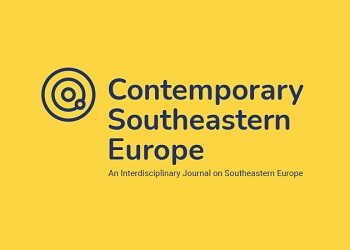When is Populism Acceptable? The Involvement of Intellectuals in the Bulgarian Summer Protests in 2013
When is Populism Acceptable? The Involvement of Intellectuals in the Bulgarian Summer Protests in 2013
Author(s): Georgi MedarovSubject(s): Civil Society, Governance, Government/Political systems, Electoral systems
Published by: Universität Graz
Keywords: populism;protests;Bulgaria;liberalism;
Summary/Abstract: Populism is frequently understood as democratic illiberalism. Concrete policies that have been implemented by governing populist parties in Bulgaria, however, have been surprisingly liberal, at least in economic terms. This poses the question whether it is possible to have the opposite of democratic illiberalism, namely, liberal populism.This article investigates the elective affinities between liberal and populist discourses during the Bulgarian Summer protests in 2013. This investigation is done with astrong focus on intellectuals' interpretations as their function is not merely reflective description, but is also formative and prescriptive of political identities. The main argument is that throughout the 2013 Summer protests there was visible tendency of articulation between populist and liberal discourses. They were populist both in the sense of “soft” populism, that is compatible with liberalism, as well as “exclusionary”of ethnic minorities and socially marginalized groups. The Summer protests constructed an identity of a minoritarian subaltern elite, united by its opposition to figures of oligarchic elites, ethnic minorities and illiberal majorities.
Journal: Contemporary Southeastern Europe
- Issue Year: 3/2016
- Issue No: 2
- Page Range: 67-86
- Page Count: 20
- Language: English

